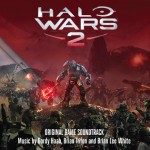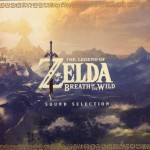[NOTE: This review deals solely with the original score of Alan Wake written by Petri Alanko, not the licensed tracks.]
Nearly five years in production, Remedy Entertainment’s Alan Wake has already been put at the forefront of the fabled video-games-as-art debate as an example of a truly gripping and interesting game narrative equal to any on the silver screen. Though it’s considered an action game, everything about Alan Wake oozes atmosphere and drama – from the shooting mechanic itself to the mini television episodes that randomly appear.
The story begins with the protagonist, a best-selling author named Alan Wake (what else?), beginning a vacation with his wife in the wooded town of Bright Falls. Clearly modeled after Stephen King’s idyllic Maine setting, we gather fairly quickly that there is more here than meets the eye. Alan begins to realize quite quickly that, somehow, his work – a book he has no recollection of ever writing – might be coming to life.
Finnish composer, Petri Alanko, scores this moody, story-driven game, and does so with much fervor. Does Alanko hit the mark or – like the town of Bright Falls – did he leave us in the dark? Click the jump to find out!
My initial impression of a score is generally the one that stays with me throughout my listening/gaming experience. Recently, the scores of Dante’s Inferno, Bioshock 2, and Red Dead Redemption, had an immediate visceral response that barely wavered throughout the duration of the soundtrack/game. In short, seldom can I say that a game score has “grown on me.” However, such is the case with Petri Alanko’s fantastic score for Alan Wake. The score grew on me not in its musical aptitude, but in its contextual purpose.
“A Writer’s Dream” opens with a high, sweet and slightly melancholic piano ostinato. Complimented shortly by light strings, Alanko has a subtle, percussive, low cymbal/gong on the downbeat – deliberately dissonant to the melodic theme introduced. Just after expanding on the warm theme, a jarring and frightening modulation takes over. Before our ears can recenter themselves on the new tonality, the theme brilliantly returns to its original key. Much like a dream, somehow there is a cohesion but there are no rules. Had Mr. Alanko kept the theme in its original theme, the resulting piece may have been a bit easier to completely absorb, but it is obvious the intentions here were to keep the drama just a but unsettled, much like Alan’s dream.
Strangely enough, the most jarring response I had was the use of the piano; a most unexpected lead instrument in an action-horror-survival-like game. Though capable of being dark, the piano is a bright and warm instrument that usually evokes a certain emotional sensibility, not one of horror or action. Wisely, I gave it a chance and I never looked back.
“The Clicker”, a piece which comes much later in the experience is a two-minute marvel. It is largely piano, strings, and high, soft percussion. Coming at a reflective moment in the game, Mr. Alanko turns what might be scored by others to be heroic or even ordinary, and turns the moment into something far more introspective and emotionally deep. It is, once again, the use of the piano in a situation that one might never expect it that makes it so effective.
The action cues of Alan Wake are much more musical and lyrical in nature than one might expect an action thriller in the woods to have. In particular, “Mirror Peak” is a percussive gem but never falls short recapitulating similar themes to the slower, more emotional tracks. Thus, we never feel that the action scenes are disconnected from the plot-heavy or moving scenes because the voice of the score remains constant and intact. There are moments where Mr. Alanko flirts with schmaltz, but he always steers comfortably clear of it simply by never allowing the style or the emotion of the moment to detract from its musical integrity.
Lastly, there is “Welcome to Bright Falls”, which would probably be considered the main theme of Alan Wake. It is a simplistic, full, and satisfying string-heavy piece with piano and oboe. It is not a dark, scary or unsettling theme. I might even go so far as to say that this piece is beautiful and full of yearning – as though it were an entity trying its best to free itself from the story’s dark and brooding atmosphere. It is here that Mr. Alanko shows his artistically magnanimous nature by focusing on the beautifully noble cause of creating light wherever there is darkness. Alan Wake is a love story and an honorable battle within its dark and often frightening setting, and Petri Alanko’s score fearlessly defies this setting….just as Alan Wake must.
I had incredibly high expectations for this score as Alan Wake‘s subject matter and genre are right up my alley. Mr. Alanko managed to change what I wanted out of the score. Essentially, he went so far in his own direction with what he wanted to achieve dramatically and musically using the tools he wanted – whether conventional for the genre and/or drama being played out on the screen or not – and managed to convince me that this was the better way.
Every artist makes choices within his own works or performances. It is imperative that the artist back up these choices no matter how insignificant they may seem. It is obvious that Mr. Alanko has made these choices with striking clarity and purpose. It is not often that a composer is able to reshape the listener’s esoteric view of a story and with an unabashed, beautiful clarity using simple but staggering melodies. Remedy Entertainment better know how lucky they are to have made this choice because Petri Alanko has certainly backed them up.
Tags: Alan Wake, Music Reviews, Petri Alanko, Remedy Entertainment









































